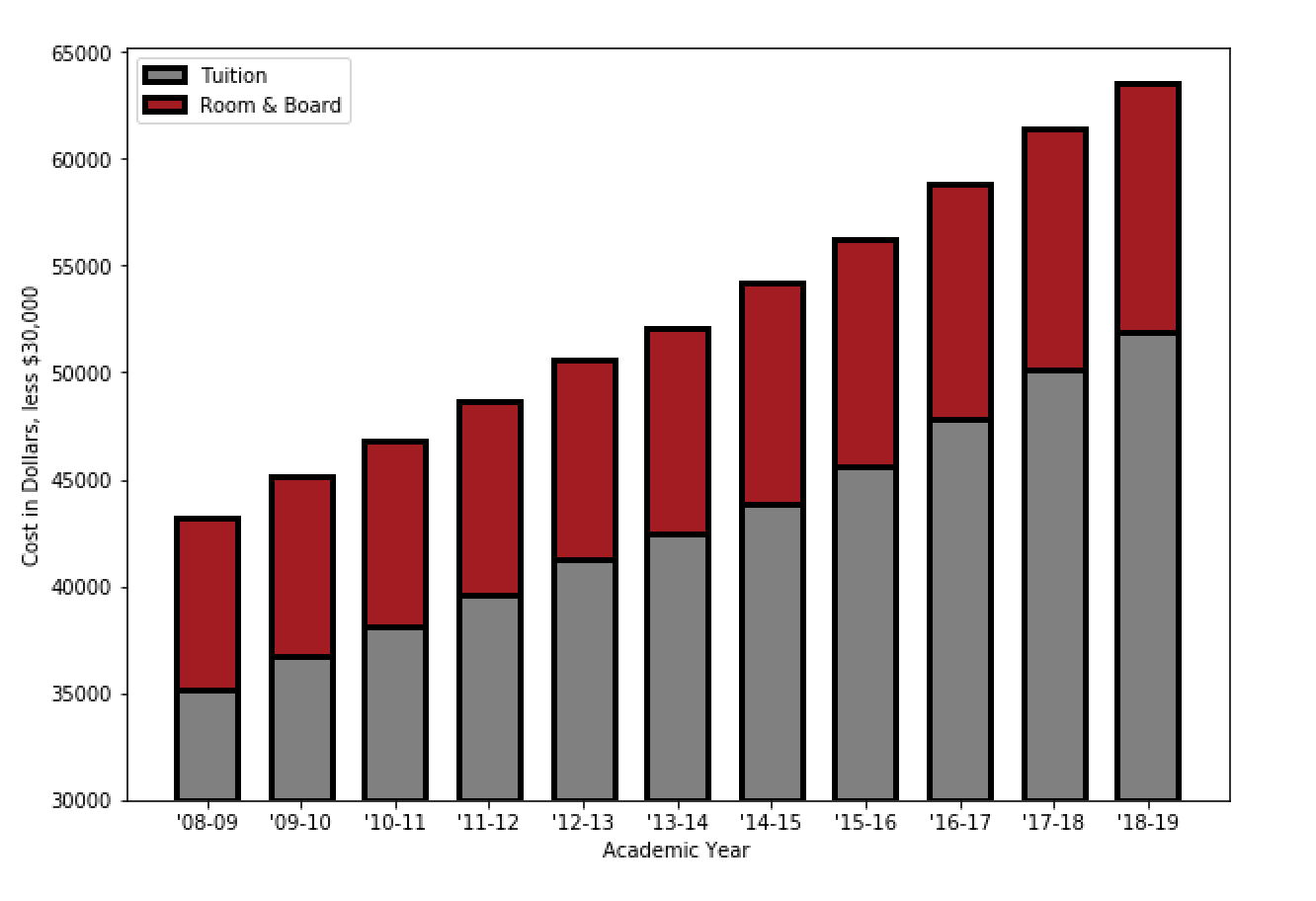The total cost of tuition, fees, room and board will raise by 3.4 percent in the next academic year, stated President John I. Williams Jr. in a letter to parents sent out earlier this week.
“While this is the second smallest increase in [our comprehensive fee in] nearly 20 years at Muhlenberg, we value the significant commitment of such an investment and know that any increase can present challenges for students and families,” said Williams in the letter. “Accordingly, we take great care in assessing an array of financial factors before making such decisions.”
The change, which was approved by the Board of Trustees, raises the total cost of a year’s education at Muhlenberg to $64,235, taking into account a gold meal plan and a standard double room. This is an increase of a little more than $2,000 for the same set up in the previous year, which is still less than the previous two years’ tuition raises.
Between 2010-11 and 2015-16, tuition and fees have increased an average of 3.7 percent each year. Academic years 2017-18, and 2016-17, however, saw a 4.87 percent increase and a 4.8 percent increase respectively, totaling $5,605 in two years.
The decision to raise tuition is additionally carefully researched by a collective group of individuals, explained Bill Keller, executive director of communications.

“The Board of Trustees reviews tuition recommendations developed through careful research and assessment by President Williams and his senior staff,” said Keller. “The decisions made to set a tuition, fees, room and board are determined by Board approval.”
Although the College predicts an increase in financial aid in the 2018-19 school year, as it does every year, it did not directly say if it will raise financial aid to compensate for the raise in tuition. The amount of aid a student receives depends on their individual situation, explained Keller.
“Financial Aid is funded through a combination of operating income, annual gifts, and income from the College’s endowment,” said Keller. “The final increase will depend on the admissions outcome for the Class of 2022, incoming transfers, and the needs of returning students.”
A College Board survey found that private non-profit four-year colleges have increased tuition, room and board costs outside of inflation by 2.2 percent. Additionally, Muhlenberg’s raise this year is slightly lower than anticipated for those of its competing schools, such as Lehigh, Bucknell, Franklin & Marshall, and Gettysburg, whose rates are predicted to raise about 3.6 percent, according to Keller.
In addition to informing students of the tuition raise, Williams and Keller alike reminded parents and students of the benefits of a Muhlenberg education. Just this past year, Keller explained, the College expanded health and counseling services, funded student and faculty research, and established partnerships with graduate school programs such as Boston University (medicine, public health and management), Lehigh University (management) and American University (finance).
“The experiences that Muhlenberg provides to our students are made possible by funding sources that include tuition and philanthropic support,” said Keller. “These are the types of opportunities a Muhlenberg education provides.”
Chloe Gravereaux is the current Editor-in-Chief of the Muhlenberg Weekly, to which she has contributed since her freshman year. She dabbles in all forms of verbal and visual art, specializing in journalism and short fiction. Her unrivaled color coordination skills and investment in the dollar section of Target have earned her the nickname "Office Mom."






















